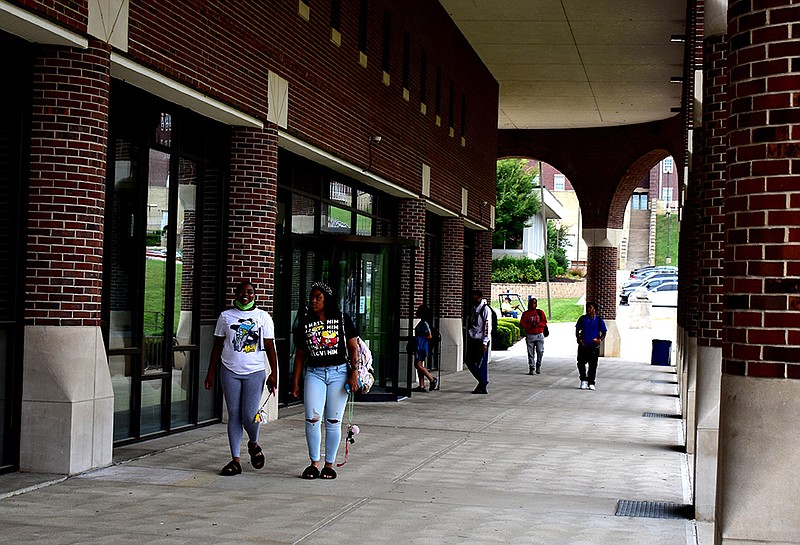Lincoln University has restructured its scholarship funds to provide automatic scholarships to high-achieving students.
The new Blue Tiger Advantage Scholarship, which takes effect fall 2022, is automatically awarded based on a sliding scale consideration of students' combined ACT/SAT test score and grade-point average.
Students with a 3.75-4.0 GPA and an ACT score of 24 and above - or SAT score of 1160 and above - are eligible for the top scholarship amount of $3,250 per semester.
Students with a 2.7 GPA and above and an ACT score of 17-19 - or SAT score of 900-1010 - are eligible for the smallest scholarship amount of $500 per semester.
In line with the sliding scale, students falling somewhere between those requirements would be eligible for funds of $500-3,250.
The scholarship can be renewed for up to eight semesters and is non-competitive, meaning multiple students can earn the scholarship without applying for it.
"Some of the scholarships that we have, of course, if there's three or four students that apply for the scholarship, then it would be either who meets the higher portion of the criteria or first-come, first-served. These are simply, if you qualify then you get it," said Misty Nunn, director of university marketing and relations.
Based on data from 2017-20, Nunn said, an average of 140 students would receive a Blue Tiger Advantage Scholarship.
Lincoln's total undergraduate enrollment this year is 1,690 students.
Nunn said the scholarship begins next fall to align with a new class of students enrolling at Lincoln.
The scholarship could become a selling point, Nunn said, as it will be included in future recruitment and social media efforts.
"It is important to our future students. We know that sometimes paying for college is one of the larger concerns for our students," Nunn said. "Knowing upfront what that price tag is going to look like for you is very helpful to our future students."
Nunn said the university's scholarship committee has been working on a plan to disperse the university's current scholarship funds to more students for the past several months.
The university's previous scholarship system is flawed, Lincoln Interim President John Moseley said, because they are assessed after a student makes the decision to attend Lincoln, which isn't helpful in trying to market the university to prospective students.
"In the past, students with equal academic performances could have been awarded different amounts, if at all," Moseley said in a news release. "The Blue Tiger Advantage Scholarship allows prospective students to know what they will receive based on their academic performance in high school and will help to make college more affordable for our top scholars."
Moseley said the new scholarship structure should help Lincoln stay competitive with other Missouri universities.
Many Missouri higher education institutions have similar sliding scale scholarship structures, including Columbia College, University of Central Missouri, Missouri Western University, Northwest Missouri State University and Missouri State University.
"A couple years ago, the University of Missouri made it much easier for black and brown students that met certain academic profiles to go to school really for their Pell (grant) and so they became a competitor for better black and brown students from the metro areas that had traditionally looked at Lincoln," Moseley said. "So, we felt that we needed to put ourselves in a position where we could be attractive to students from an academic scholarship standpoint."
It's a win-win situation, Moseley said, because more students receive scholarship funding and the university becomes more attractive to students who are more "academically prepared."
With the way athletic scholarships are structured, Moseley said, the change also encourages athletic programs to recruit better quality student athletes so they can attend Lincoln without a balance as the scholarship can be stacked with athletic scholarships and additional financial aid.

